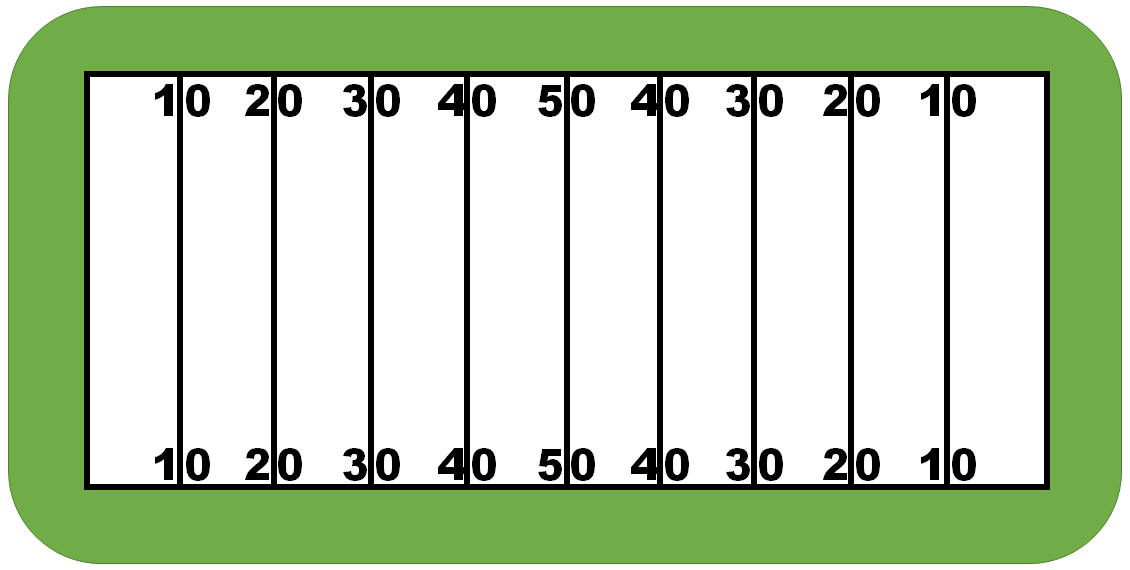I was never much into football in my youth. But when I joined a co-ed, intramural flag football team in college, I got totally hooked. All of a sudden, the Saturday collegiate and Sunday professional games made sense. In fact, during the first 25 years of our marriage, my husband and I were glued to the tube on Sundays watching football while eating mass quantities of popcorn. Those were the days!
So, when I started thinking about all of the relationships in my life, it was easy for me to think about them in the context of a football stadium and all the action that takes place on the field.
My “teammates” represent the most important relationships in my life. They’re the folks who’re on the field figuring out how we’ll reach our goals and doing the work to get there. They show up week-after-week, ready-to-go in all kinds of weather. We rejoice together when we make progress toward our goals. We keep one another motivated when we have set-backs. We pick one another up when we fall. And we don’t care how much mud we accumulate in the process.
I cannot do anything meaningful, challenging, risky, or great without “teammates.” And I can’t imagine relishing life as much as I do without them.
The “opposing team” might include challengers or challenges that we intentionally place on the field to stretch ourselves and perfect our skills and strategies. They might include “teammates” who temporarily fill that role to help us become better prepared to address the real thing. And they might include adversaries and adversities that we hadn’t anticipated and for which we need effective responses.
Opposition is not a bad thing. It creates opportunities to expand our horizons while making us smarter, stronger, more experienced, and more vibrantly alive. It also encourages us to deepen connection with our teammates.
My “coaches” are experienced teachers, trainers, observers, and subject matter experts who’ve played the game and know how to succeed. They may excel at strategy, individual training, team building, or all of the above. They are passionately committed to crossing the goal line yet retain the professional detachment to render objective assessments and advice.
Having a coach is not a sign of weakness. It’s an indication that you take the game seriously and want to give yourself the right tools, training, and level-headed counsel to succeed.
In life and on the field, you need to be as adept at playing offense as you do defense. You may wind up having slightly different teammates and coaches to attain mastery in both disciplines. And these “rosters” will likely change many times over the course of lifetime.
Changes in lifestyles, circumstances, goals, shared interests, etc. have a ripple effect on everyone’s lives. If you’re lucky, a precious few will sustain key roles in your life over the years. Yet, you’ll always need to be engaged in community to attract people into your stadium (and be open to entering theirs!)
Everyone else hangs out somewhere in the stands. Some serve as a cheering squad to provide loads of encouragement during the game of life. Some occupy close-in seats so that they can keep a close watch on the action. Some sit farther afield and pay attention from time to time. Others sit in the end zone up in the second tier and spend most of their time talking to their friends while eating and drinking. They may plug in when something noteworthy occurs.
We all make varying investments in the people in our lives. And we all implicitly set expectations for how we expect folks to show up for us. We need to discern accurately where folks “choose their seats” in our stadiums and set our expectations accordingly. As such, we won’t work ourselves into a lather if someone doesn’t notice what’s happening on the field if they’ve opted to sit in the nosebleed seats and drink beer. Just bless them for showing up!
I reserve the right to deny access to my stadium. I’m good to go with constructive opposition that serves a useful purpose for all concerned. But I’ve come to a place in my life where I don’t need relationships that are chronically and incorrigibly negative. That’s my definition of a lose-lose proposition. And why go there?
As you look at your stadium of life, do you have all of the people you’d like to fill the positions you have available? If not, what are you prepared to do about it?
